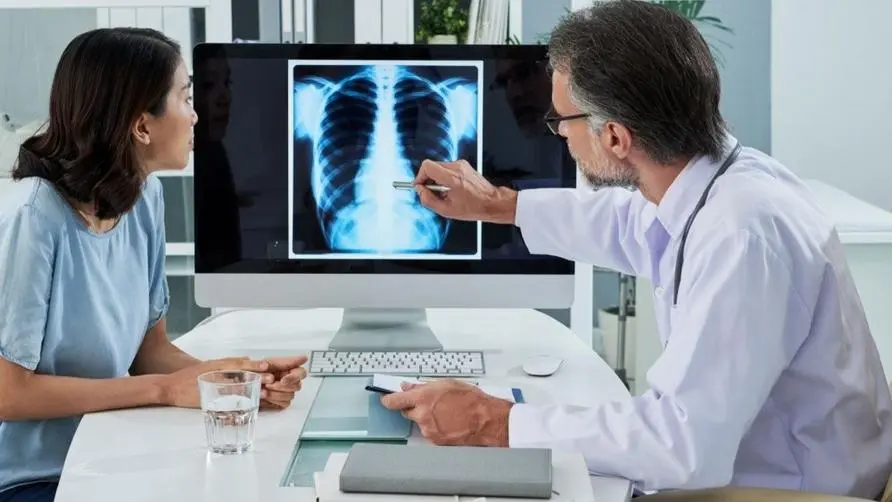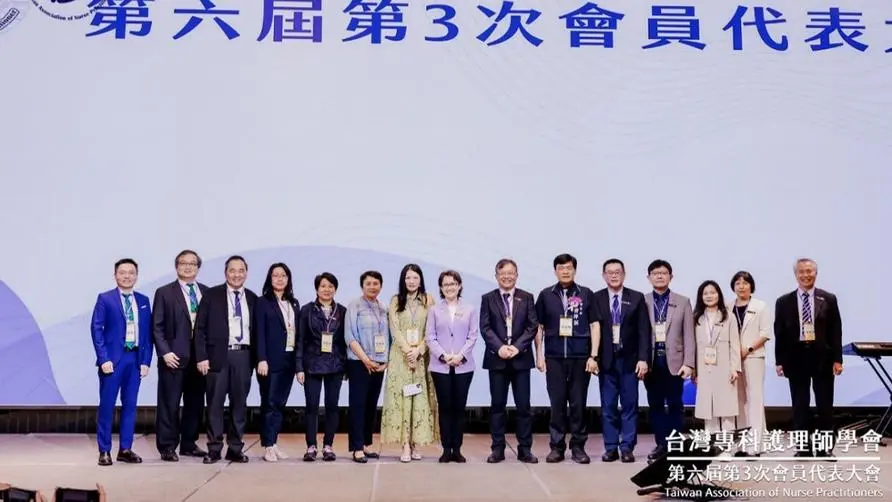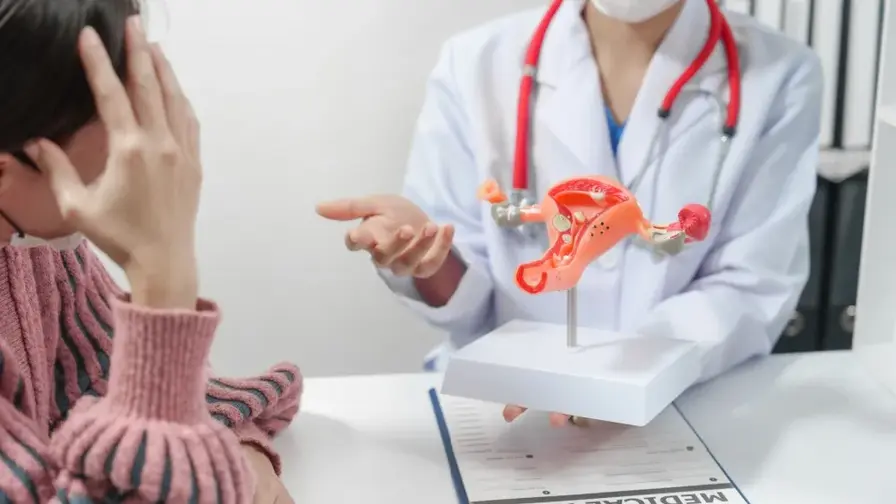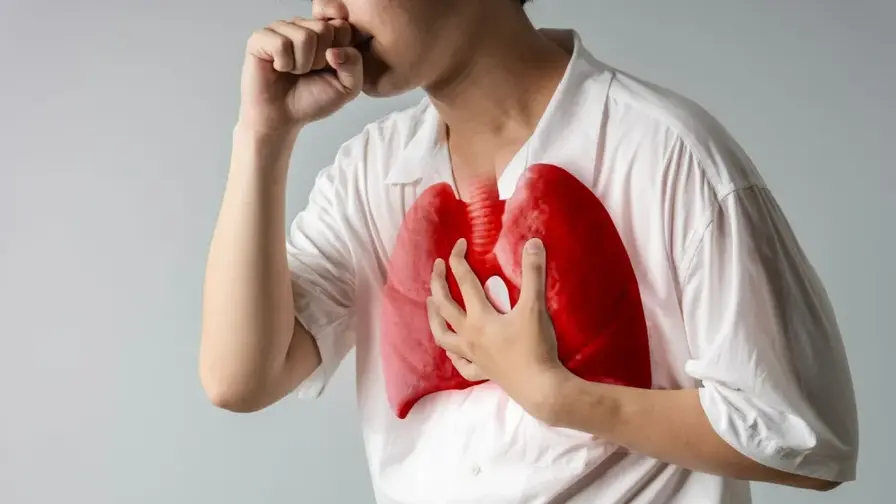Is it necessary to test for EGFR gene mutation in early stage lung cancer? Medical reveals the benefits of third-generation target therapy: risk of recurrence is expected to be reduced by 80%

The number of new cases of early-stage lung cancer has increased the most! Doctors reveal lung cancer is not necessarily related to smoking
According to the latest cancer registration data released by the Taiwan Ministry of Health and Welfare, the number of new cases of lung cancer reached 16,880, surpassing colorectal cancer for the first time to become the top ten cancers. Li Chunhui, an attending physician in the Department of Medical Oncology at National Cheng Kung University Hospital, said that most Taiwanese people are still diagnosed with lung cancer at an advanced stage. However, with the increase in social health awareness and the government’s promotion of the “Lung Cancer Early Detection Plan”, the concept of low-dose computed tomography scans has changed. In recent years, the proportion of early-stage lung cancer detected has increased significantly by about 20%, and the detection of gene mutations related to lung cancer has also become the key to adjuvant treatment selection.
Dr. Li Chunhui pointed out that each pathological type of lung cancer has its own corresponding risk factors, such as small cell lung cancer, squamous cell carcinoma, etc., the causes of which are directly related to smoking. Currently, lung adenocarcinoma is the most common type of lung cancer in Taiwan. Lung adenocarcinoma is more obviously affected by environmental factors such as air pollution PM2.5 and family history. It is also the lung cancer with the highest incidence rate in non-smoking women, indicating that the common living schedule and growth environment may It is a carcinogen. In the past, it has been found that after the child was diagnosed, the mother subsequently developed lung cancer.
In addition, lung adenocarcinoma may develop micro-metastasis when the tumor size is small, and it is even more necessary to actively use low-dose computed tomography and other examinations to help early detection. Dr. Li Chunhui said that early-stage lung cancer has no obvious symptoms, and many patients are only discovered when the tumor metastasizes to the brain and causes stroke-like symptoms. This is the main reason why most patients are diagnosed at an advanced stage. In addition to those with a history of heavy smoking and a family history of lung cancer that are in line with the “Early Lung Cancer Detection Plan”, those who have asbestos-related occupational exposure, chronic bronchial obstructive disease, etc. are also recommended to receive early lung cancer screening.
The risk of recurrence after surgery is still as high as 70%? Treatment of early-stage lung cancer is expected to reduce recurrence by nearly 80%!
Dr. Li Chunhui explained that early lung cancer refers to tumors between carcinoma in situ and stage 3B in cancer staging. The most preferred treatment consideration for early stage lung cancer is surgery. However, according to statistics, even if it is between stage 1B to stage 3A, For early-stage lung cancer, there is still a 45%-70% risk of recurrence. Therefore, it is still necessary to follow up regularly after surgery and determine adjuvant treatment methods based on pathological staging to reduce the chance of lung cancer recurrence.
In recent years, cancer treatment has entered the stage of “precision treatment”, which can “tailor-make” treatment strategies according to the patient’s condition, and the treatment of lung adenocarcinoma is closely related to genetic mutations. Dr. Li Chunhui said that the proportion of lung adenocarcinoma in Taiwanese people is as high as about 60%, and nearly 55% of lung adenocarcinomas in Asian ethnic groups have epidermal growth factor receptor (EGFR) gene mutations. Treatment with corresponding targeted drugs will be more effective. Good therapeutic effect. A clinical trial last year (2023) also found that the use of third-generation targeted drugs for early-stage lung adenocarcinoma (stages 1B to 3A) with EGFR mutations can relatively reduce the chance of recurrence by 77% and reduce the risk of death by 51%. Evidence The data is really encouraging.
Dr. Li Chunhui explained that in the past, patients with lung adenocarcinoma were most worried about recurrence after surgery, especially tumors with EGFR gene mutations. When they relapse, they are easy to metastasize to distant sites and the brain, significantly affecting the effectiveness of drug treatment and quality of life. The latest research shows that third-generation targeted drugs can significantly reduce the recurrence rate within 3 years in the treatment of early-stage lung adenocarcinoma, which has significant benefits for disease control and quality of life. Therefore, once early-stage lung cancer is discovered, early relevant genetic testing should be considered to choose adjuvant treatment that has a greater chance of reducing recurrence.
Patients with EGFR gene mutations have been stably controlling their disease for more than 5 years by receiving third-generation targeted drug therapy.
Precision treatment has become a powerful tool in the fight against cancer, and whether to include genetic testing in benefits has also become a focus of public opinion. Dr. Li Chunhui said that 9 major related gene mutations have been found in lung adenocarcinoma, including the most common EGFR, ALK, ROS1, and K-RAS, which all have corresponding target drugs. In addition, the number of new cases of lung cancer ranks among the top ten cancers. First of all, inclusion in health insurance benefits does have certain medical benefits.
However, the number of genetic testing items varies depending on the platform. It can only detect gene mutation points for which there are currently definite drugs, or it can simultaneously detect 300 to 400 genes for tumor DNA and RNA. The cost of testing varies greatly. Which genes do the general public have no idea about? The necessity of testing is difficult to understand. Clinically speaking, whenever lung adenocarcinoma is newly discovered, it is recommended to detect at least EGFR and ALK, the two most common gene mutations in Asians.
Dr. Li Chunhui explained that after surgery for early-stage lung cancer, in addition to adjuvant chemotherapy, those who are found to have EGFR gene mutations can continue to use targeted therapy; if EGFR or ALK gene mutations are not found, it is recommended to use chemotherapy or chemotherapy combined with immunotherapy. The treatment weapons are quite sufficient. Diverse. In particular, EFGR-targeted drugs have advanced to the third generation, and clinically it can be seen that patients continue to use targeted drugs and survive for more than 8 to 10 years. Even stage 4 patients have the benefit of 18.9 months of disease-free survival. With increasingly developed genetic testing technology, lung cancer patients will have the opportunity to choose more effective personalized treatment.
Dr. Li Chunhui pointed out that past lung cancer treatment experience has shown that as long as lung adenocarcinoma has EGFR gene mutations, early detection and early receipt of appropriate targeted therapy can best reduce the recurrence rate and relatively reduce the risk of death. In the past, a case of lung adenocarcinoma was treated and received standard treatment with third-generation targeted drugs for three years. Recurrence in situ did not occur until a year and a half after stopping the drug. After re-sectioning and application for payment, the current stable control has exceeded 5 , 6 years, but must cooperate with close follow-up to maintain a good quality of life.
The focus of post-operative care for early-stage lung cancer: regular follow-up visits, maintaining physical and mental health and staying away from risk factors!
In addition to early detection and selection of treatments that are expected to reduce the risk of recurrence, early-stage lung cancer also requires regular follow-up visits. Dr. Li Chunhui reminds that in the first five years after surgery for early-stage lung cancer, patients should be regularly reviewed for imaging examinations every 3 to 6 months, and adjuvant chemotherapy, chemotherapy combined with immunotherapy, or targeted therapy should be used before or after surgery. .
Dr. Li Chunhui said that chemotherapy can easily affect immunity and increase the risk of infection. Intensive follow-up is required six months after surgery. In terms of diet, you should pay attention to a balanced diet, avoid raw food, and maintain physical and mental happiness to help the body recover. You should avoid ingesting irritating substances in your diet and maintain a healthy lifestyle. It is recommended to exercise regularly but within your ability, and stay away from risk factors in the environment, such as air pollution or occupational exposure.
Dr. Li Chunhui emphasized that every drug and treatment method is associated with certain risks of side effects. Lung cancer patients should discuss with their doctors in detail before treatment to understand how to control side effects to improve drug compliance and maintain a better quality of life during treatment. In view of the rapid advancement of medical technology, as long as appropriate treatment is adopted to obtain the best survival and quality of life, there is a chance to usher in newer treatment methods and continue to coexist with the disease.
Extended reading:





